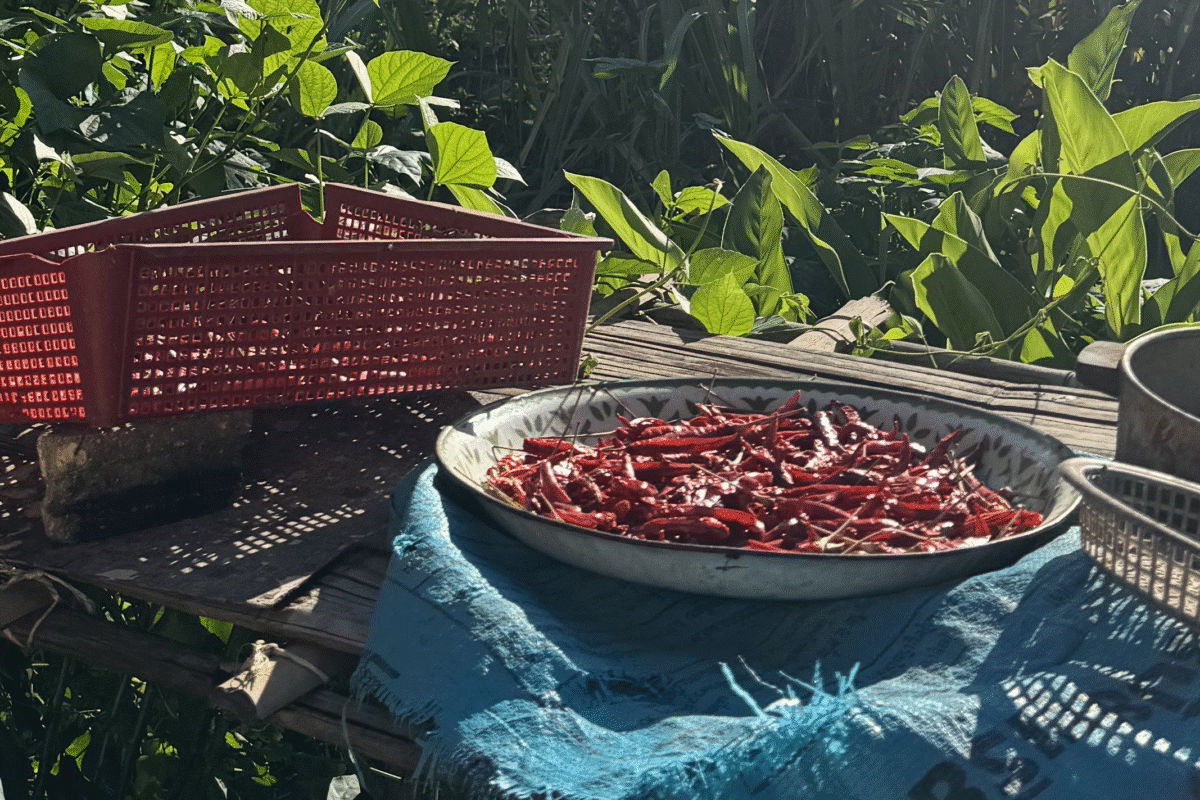Bring hope to forgotten conflicts

A metal bowl of chillis basking in the sun – a day and night’s work. A backpack larger than the child bearing it. An elderly man whose injuries from a landmine have left him bed-bound, only able to move using a rope tied to a wooden shack. The same man who shed a tear because we listened to his story. A child who found her smile in a new friend on her first day of nursery.
Another child whose name is on a military conscription list of an ethnic armed group in Shan State. Four teenage novice monks who would have fought against one another had they not fled to Thailand. An orange grove coated with chemicals, with long-term health implications for farmers but with the short-term guarantee of a meal that evening. A truck trundling with students – bellies and minds full after the schoolday. Stories passed through an interpreter but translated through smiles and moments of shared acknowledgements.
Toy guns made from building blocks; spared the real guns they would have held if forcefully recruited by an armed group in Myanmar. A school principal who refused to speak the names of said armed groups: “here we are all friends”. Family or country? 36 families living in one block. Mothers, with no formal education, sacrificing everything for their children’s education. The same mothers who walked two hours across a mountain in the dark, avoiding snakes and landmines, to cross the border into Thailand. And, with nothing but their children and the clothes on their backs. Weighty dreams resting on pen and paper. The gentle hum of hope.

In May 2025, I accompanied an education-focused monitoring visit to the Thai-Myanmar border in my role as Advocacy Coordinator at Humanitarian Aid Relief Trust (HART). It was my first time meeting our partners at Shan Women’s Action Network (SWAN), and it was a privilege to see their warmth, sacrifice and commitment in action.
We visited SWAN-supported nurseries and schools along the border, as well as orange and chilli farms where we met families who had recently migrated from Shan State, Myanmar into Thailand. They shared their testimonies in the hope that their stories would be heard and heeded. The above deeply resonated with me and continues to echo in my mind months later.
I returned with a deeper cultural and political understanding of the escalating humanitarian crisis in Myanmar. I also returned with a new appreciation for SWAN’s work as a critical bridge for undocumented families starting anew along the Thai-Myanmar border. Among the testimonies we gathered, there is a common thread: education is a lifeline. Never has it been so paramount and so at-risk following US and European cuts to aid.
Above all, I returned home with the pulse of testimony, gently but persistently, coursing through me. One young man, originally from Shan State and now a Thai teacher in a monastery, reflected on the responsibility of “knowing” and “sharing”. Personally, this message reaffirmed that human rights are underpinned by the responsibilities we owe to one another. Taking a moment to listen and to seek out the stories – unheard and untold – is the first step to fulfilling these responsibilities. Thank you to the families who trusted us with their stories.
Find out more about the impact of our local partners in Shan State in our latest visit report: Women’s Empowerment in Myanmar.
By Anaïs Arroyo, Advocacy Coordinator at HART
